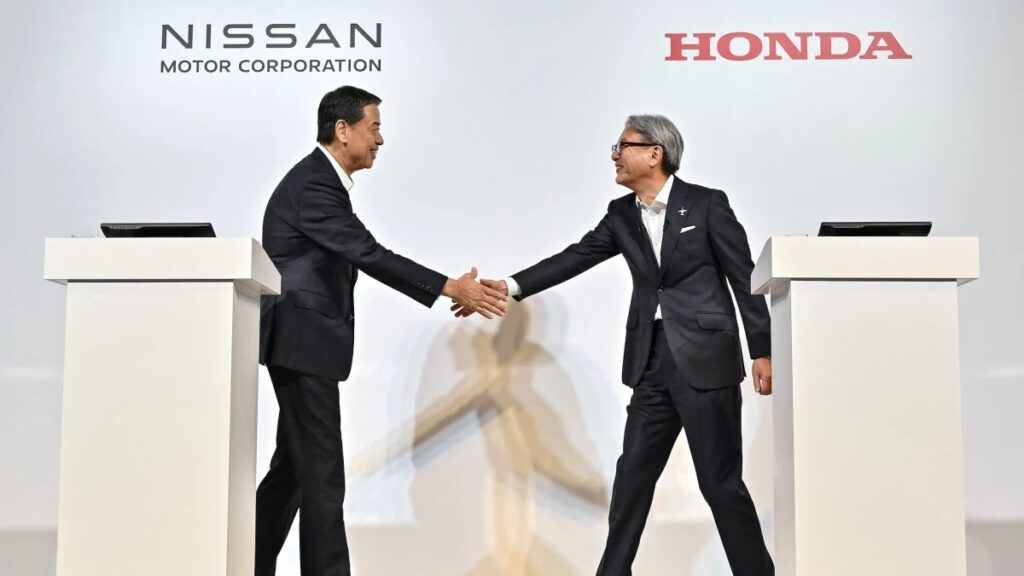Nissan, Honda and Mitsubishi will share EV components and AI research

TOKYO — Japanese automakers Nissan and Honda say they plan to share components for electric vehicles like batteries and jointly research software for autonomous driving.
A third Japanese manufacturer, Mitsubishi Motors Corp., has joined the Nissan-Honda partnership, sharing the view that speed and size are crucial in responding to dramatic changes in the auto industry centered around electrification.
A preliminary agreement between Nissan Motor Co. and Honda Motor Co. was announced in March.
After 100 days of talks, executives of the companies evinced a sense of urgency. Japanese automakers dominated the era of gasoline engines in recent decades but have fallen behind formidable new players in green cars like Tesla of the U.S. and China’s BYD.
“Companies that don’t adapt to the changes cannot survive,” said Honda Chief Executive Toshihiro Mibe. “If we try to do everything on our own, we cannot catch up.”
Nissan and Honda will use the same batteries and adopt the same specifications for motors and inverters for EV axles, they said.
By coming together in what Mibe and counterpart at Nissan, Makoto Uchida, repeatedly called “making friends” to achieve economies of scale, the companies plan more strategic investments in technology and aim to cut costs by boosting volume.
Each company will continue to produce and offer its own model offerings. But they will share resources in areas like components and software development, where “making friends” will be a plus, Mibe and Uchida told reporters.
They declined to say whether the friendship will extend to a mutual capital ownership, while noting that wasn’t ruled out.
The two companies also agreed to have their model lineups “mutually complement” each other in various global markets, including both internal combustion engine vehicles and EVs. Details on that are being worked out, the companies said.
Honda and Nissan will also work together on energy services in Japan. Under Thursday’s announcements, Mitsubishi will join as a third member.
Toyota Motor Corp., Japan’s top automaker, is not part of the three-way collaboration.
Although Honda and Nissan have very different corporate cultures, it became clear, as their discussions on working together continued, their engineers and other workers on the ground have a lot in common, Uchida said.
“Speed is the most crucial element, considering our size,” he added.
Uchida and Mibe repeatedly stressed speed, openly admitting BYD is moving very quickly, but they said there was still time to catch up and remain in the game.
“In coming together, we will show that one plus one will add up to become more than two,” Uchida said.



